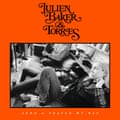S
A few years back, a newspaper editor traveled north to witness the property boom that is changing Manchester’s city center and its skyline. Andrew Spinoza was chosen to be the tour guide for this trip.
“I accompanied him on a Metrolink tram from his hotel to Salford Quays,” states Spinoza in Manchester Unspun, a book that has rightfully earned a paperback edition. “This journey displayed the striking blend of Manchester’s past and present. The decaying and torn sides of the city were being merged with sleek modern structures. The sights from St Peter’s Square, through Castlefield, to the Lowry Centre were, and continue to be, a captivating 20-minute showcase of the revitalized urban hub.”
Nowadays, Spinoza would likely recommend a visit to Aviva Studios for the curious guest. This newly opened arts venue, which cost £242m and was built on the former location of Granada Studios, is grand and spacious. Its debut production is a dance adaptation of The Matrix, directed by Danny Boyle, and is filled with nods to the cultural heritage of the Republic of Mancunia. The show features a soundtrack by New Order, references to Alan Turing, and visuals of yellow trams traveling towards the growing Deansgate towers. It is a warm welcome to Manchester, also known as “Manc-hattan” by some, with a hint of ambivalence.
Using his personal experiences and the history of the city, Spinoza skillfully tells the tale of how Cottonopolis has transformed into its modern identity. It seems that a major reason for creating Manchester Unspun is the author’s amazement at the magnitude of this change.
In 1979, the writer came to the university from the southern region and found that the city center’s economy was struggling. From 1972 to 1984, Manchester saw a decline of 207,000 jobs in the manufacturing sector. The center of the city was sparsely populated, in disrepair, and in certain areas of its former industrial hub, dangerous to visit. Quoting urbanist David Rudlin, Spinoza describes the desolate landscape he encountered during his studies in the same year, where “we walked through six miles of continuous abandonment from the heart of the city to its outskirts.”
Introducing Tony Wilson. Spinoza’s compelling argument suggests that the unconventional cultural movement initiated by one of the founders of Factory Records during the 1980s set the foundation for an economic revival. The Factory style, inspired by Manchester’s industrial history, foreshadowed a future where spectacle and entertainment would take over as the primary means of production. The captivating, somber atmosphere of Joy Division during a time of recession, the notorious Haçienda nightclub, and the hedonistic indulgences of the “Madchester” era all contributed to the city’s irresistible appeal, which council leaders Richard Leese and Howard Bernstein were able to capitalize on.
In the 1980s and 1990s, Manchester’s top politicians abandoned their pursuit of municipal socialism in a politically conservative country. Instead, they controversially opened the city to private investment on very favorable terms. This decision was influenced by the success and global recognition of Manchester’s vibrant party scene, highlighted in Michael Winterbottom’s film about Wilson. According to Spinoza, this party culture helped bring attention to Manchester and attract events like the Commonwealth Games. The city saw an influx of young professionals moving into newly constructed apartments. The influence of “Factory Records and the Haçienda” is credited with revitalizing a declining city and sparking a series of events that continue to impact politics, money, and scandal in Manchester today.

The statement may be slightly exaggerated. Leese, who was extensively interviewed in the book, shares this opinion. However, as a well-connected and long-time resident of Manchester, Spinoza is in a prime position to argue for it. After graduating from university, he started the publication City Life, focusing on arts and events, and later became a highly connected editor for the Manchester Evening News.
After starting his own public relations company, he became a part of several significant construction ventures in the city. He also observed several exaggerated design failures, including the poorly planned Urbis building. In one particular encounter, which he recalls in the book, he is abruptly let go by the quintessential modern Manchester figure, Gary Neville, following a disagreement regarding PR tactics for a potential high-end hotel. A sympathetic real estate advisor informs him: “Gary highly values the opinions of his advisors, as long as they align with his own.”
Neville is just one of many characters in Manchester Unspun, which covers 40 years of changes in the city. While some people are happy with the transformation, there are also critics who are not pleased with the process of gentrification that has changed the atmosphere of the city center. Spinoza includes the voices of these critics in the book. As the city’s growth strategy becomes more corporate (Aviva Studios was originally planned as “Factory International”) and the future of certain areas is controlled by Manchester City’s Abu Dhabi owners, there may be a sense of longing for the earlier, more chaotic times when Wilsonian ambition was in charge in what locals still call “town”.
In the 1980s, Factory and New Order collaborated to open a sophisticated bar on Oldham Street, which caught the attention of Granada Television. Stuart Maconie, a young reporter, was sent to inspect the unique designer urinals. However, this modern venture was met with resistance from some traditional Mancunian figures. Shaun Ryder and Liam Gallagher expressed their disapproval by throwing a bottle at a bar mirror and breaking an expensive vase. Another clash of ideologies occurred at the Haçienda in 1996 when a seminar on situationism, a philosophy that influenced Factory’s approach, was held. Mark E Smith heckled the speaker, Tony Wilson, to define the concept, but Wilson could not provide a clear explanation and admitted he simply enjoyed the slogans associated with it.
Spinoza shares these stories with a dry enjoyment. In his teenage years, he ventured north, influenced by Manchester’s history of political radicalism and the writing of music journalists like Paul Morley and Jon Savage. He was then witness to the remarkable transformation that unfolded over the next forty years. With a calm and informed perspective, Manchester Unspun accurately portrays this journey in an engaging manner.
-
Manchester Unspun, written by Andy Spinoza and published by Manchester University Press, delves into how the city became enthralled with music. You can order your copy through guardianbookshop.com to support the Guardian and Observer. Additional delivery fees may apply.
Source: theguardian.com


